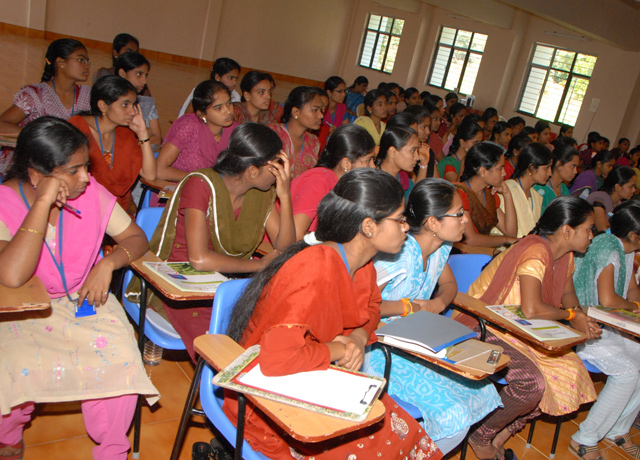How 'Global Citizenship' Education Can Fill the Skilled Workers Gap

(IAPEN Activities/Flickr)
As in many fields, education jargon can overwhelm. We talk about the importance of preparing all students for success in school and in life, for college and career, for the 21st century, to be ready for a global workforce, to be globally competent, to be global citizens, and so on.
We talk circles around one another, and at a glance, global citizenship and workforce readiness might sound like two very different — and potentially conflicting — goals. In reality, they’re simply two sides of the same coin.
Last autumn, the United Nations announced its ambitious sustainable development goals. Included in those goals were "global citizenship education," defined by the U.N. as “the knowledge and skills needed to promote sustainable development, including, among others, education for sustainable development and sustainable lifestyles, human rights, gender equality, promotion of a culture of peace and non-violence, global citizenship and appreciation of cultural diversity and of culture’s contribution to sustainable development.”
In the meantime, businesses around the world are facing a shortage of qualified employees, and many are concerned about ensuring that those entering the workforce are actually ready to do so. The U.N. also acknowledges this need in their sustainable development goals, calling for a drastic increase in “the number of youth and adults who have relevant skills, including technical and vocational skills, for employment, decent jobs and entrepreneurship.”
In a recent study by Manpower Group, 38 percent of employers in 42 countries were unable to fill jobs due to a lack of skilled workers in 2015 (a seven-year high). And this is evident in the United States, where it is projected that over the next decade more than 2 million jobs will go unfilled in the manufacturing industry alone because of the skills gap.
But what are we really talking about when we say “global citizenship education?” Put simply, we’re talking about teaching students to communicate, collaborate, and think critically and creatively, ultimately taking action to improve conditions both locally and globally.
Likewise, what skills are missing when new employees enter the workforce, according to their employers? It turns out they’re missing those very skills: communication, collaboration, critical thinking, creativity, and similar “soft” skills. According to a 2012 study by the OECD, less than half of the American workforce has solid problem-solving skills, similar to the OECD average. And the aforementioned Manpower study cites a lack of soft skills as one of the top five reasons as to why employers aren’t able to find employees to fill their jobs.
These so-called non-cognitive skills are more critical to success than any of the traditional subjects in school according to University of Chicago Professor and Nobel laureate Dr. James Heckman.
By promoting policies that build non-cognitive skills early, Heckman says, skills beget skills, and students will ultimately complete school more prepared for the workforce — and to be global citizens — than they would with a focus solely on cognitive skills.
To build these critical skills, we must advocate for education policies that invest in not only cognitive but also social and emotional development from early childhood to early adulthood, including non-formal education programs that complement school. Educators need the time and the support to facilitate project-based learning that helps students develop these skills, along with more authentic assessments to inform their development. Also needed are more partnerships between schools, businesses, and communities that enable students to apply these skills in the “real world” through internships and apprenticeships.
Investing in education not only builds strong global citizens, it also makes good economic sense. However, a recent Business Backs Education report found that most of business investment in education goes to tertiary and vocational education, primarily in the fields of STEM (science, technology, engineering, and math) and financial literacy. For businesses that want to invest in local communities and avoid expensive on-the-job training, consider a broader range of investments with longer-term benefits:
- Remember that skills beget skills — Support the development of a globally competent workforce throughout the education pipeline, from pre-primary through primary and secondary education systems.
- Emphasize a broader set of education outcomes — Support not only cognitive but also social and emotional skills that make up the full array of competencies needed in a global 21st century.
- Encourage more authentic measures of success — When recruiting and hiring, value performance assessments, badges, and portfolios of work demonstrating competencies, not only test scores and grades.
As part of an organization that has spent the last dozen years focusing on the intersection of globalization and education, the Center for Global Education at Asia Society works alongside businesses, educators, families, governments, foundations, and other nonprofit organizations alike to drive educational transformation around the world and develop a generation of global citizens able to thrive in a global economy and address the world’s most intractable problems.
I hope you will join us in pursuing a vision of a future in which all students are ready for employment and citizenship in a global 21st century.
This post appears courtesy of the Global Education & Skills Forum


